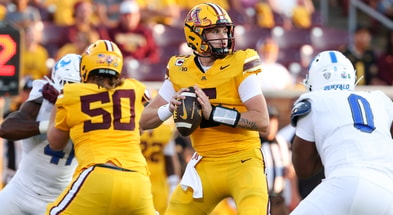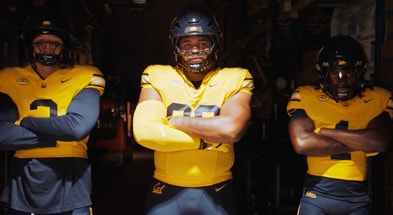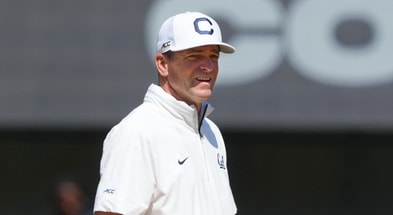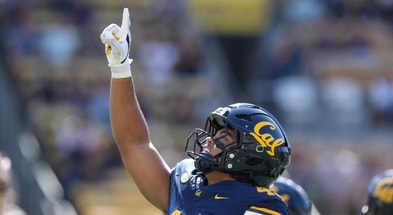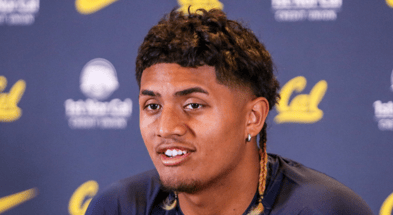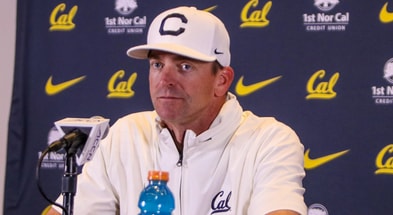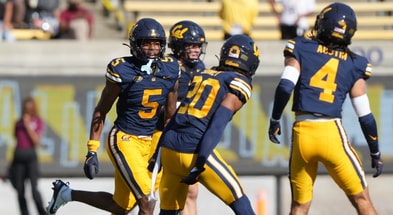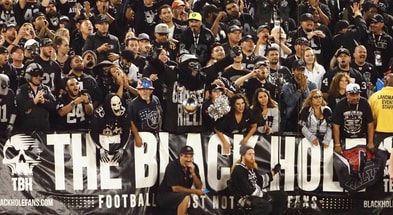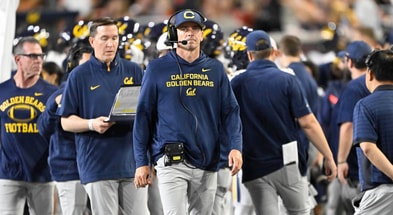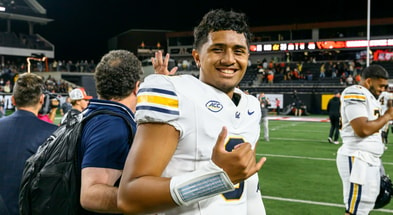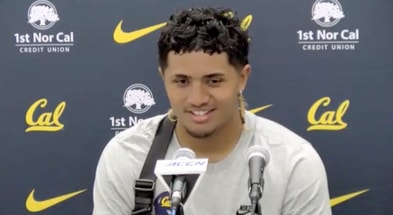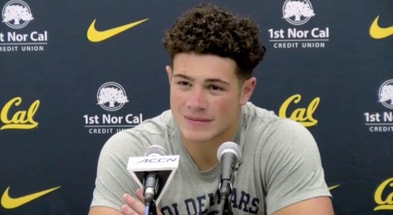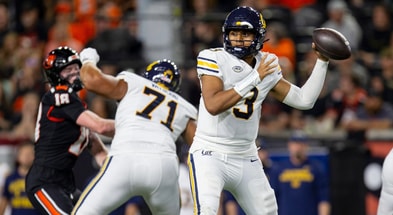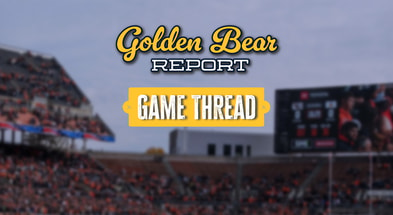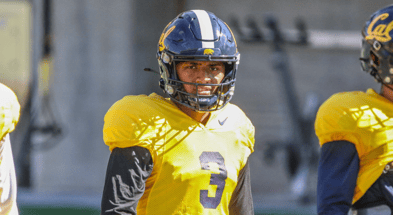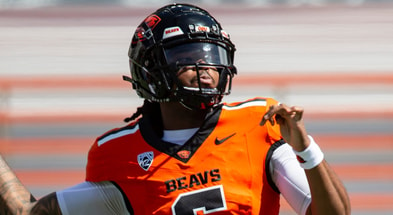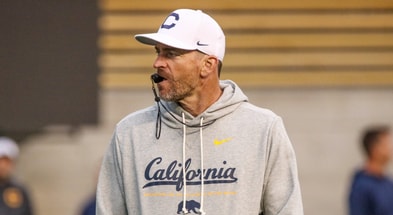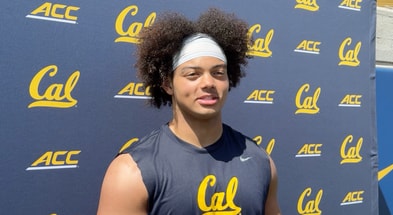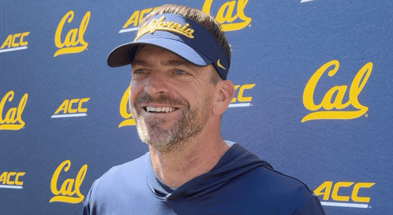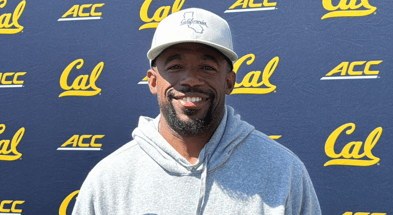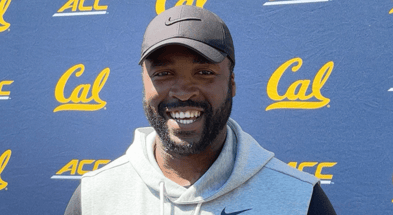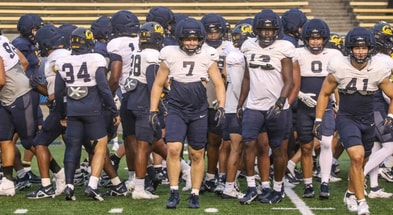Everything Cal head coach Justin Wilcox said at ACC Kickoff
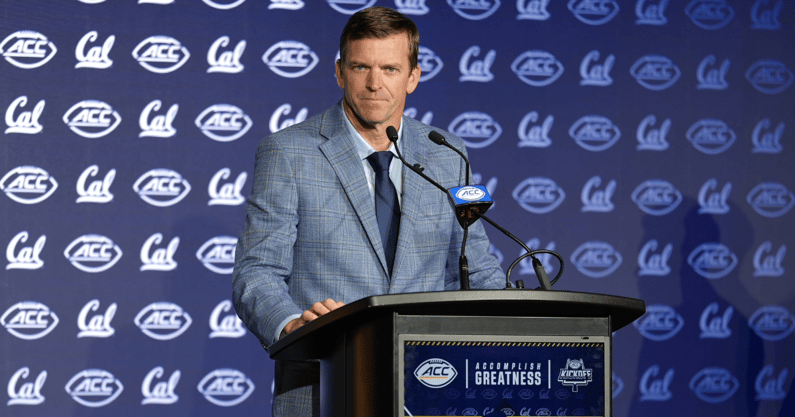
Tuesday marked the first day of the ACC Kickoff event in Charlotte giving Justin Wilcox the chance to meet with reporters for the first time this summer. The Cal head coach is headed into his ninth season with the Bears. Again, there have been sweeping changes with the team.
The offensive staff is nearly entirely new, and there are two new defensive coordinators. Wilcox’s team appears to be headed for another quarterback battle. Plus, there are several newcomers to work into the mix.
There is a lot that will need to take place in Berkeley for Cal to be ready for its opener Aug. 30.
The team will report for camp next week. However, Tuesday presented an opportunity for Wilcox to address some of the key topics with his team. The Cal head coach spent just over 13 minutes fielding questions from ACC media Tuesday.
Justin Wilcox ACC Kickoff transcript
You’ve had a record number of turnover this last year, I think over 50 new people between grad transformfers, portal transfers, and freshmen. Would have been some of the most complicated things navigating that, and it would have been some of the most pleasant surprises you’ve seen so far through spring and summer workouts?
Yeah, the most complicated thing, I think, is just the time and the numbers. From year to year, that number’s going to change. This year was higher than maybe we would have thought, but we have unbelievable team of people around us. It’s obviously the coaches, but we have an incredible staff, personnel staff, and now added GM, Coach Ron Rivera. And, we got a lot of support to go identify players who physically, we feel like can help us, who are going to fit in at Cal and have the character traits that we’re looking for. And I think the pleasant surprise has been just once those guys have been identified and getting them into school and getting them connected together, it’s been really, really fun to watch. We got a lot of really good guys on the team, we got and they’re talented players. But the way that they’ve come together, starting in January, and then absorbing some guys, even this June, onto the team and working together, it’s really shown up on the field and in the locker room with how connected those guys are, and that’s been a pleasant surprise.
Just to go deeper into the general manager portion side of things, just how the college football world has evolved and now we have these general managers and then specifically, what it’s like to work with Ron Rivera?
I think the term maybe is a little more fluid that it is in pro football, in my opinion. I haven’t been in pro football, but for the most part in pro football, the GM role is pretty standard. You know, it’s roster management, working with the coach, a cap person, identifying players, contracts, those type of things. And there’s a significant amount of that that’s happening in college, but the difference is, is there’s recruiting versus drafting. That’s a big difference. And the kind of fluid nature of college football versus the contract lengths in the NFL, that’s different. There’s constituent groups, there’s working with the campus, there’s working with donors to raise money. And the second part of your question, Coach Rivera, has been unbelievable.bI mean, he’s got so many different experiences in pro football, which have helped. Just organizational structure, roster management, talking about players, situational football – kind of from a 10,000-foot view. But his job is, I mean, it’s dynamic now. He’s talking to donors, he’s an advocate, he’s talking to folks on campus, directly to the Chancellor. And so I think in college, we hear that term GM, but I think it really depends on which school and how they define that role. Because, there probably are schools where it is just cap and players. And then there are schools like us where it’s a bigger role. It’s really just the tip of the spear of football in general, and there’s a lot that goes into that. So I think that’s where it’s a little bit different than maybe the NFL.
Last year, we saw a quarterback competition between Fernando Mendoza and Chandler Rogers. Will we see a similar type of competition play out between Devin and Jaron?
Yeah, first of all, we feel really good about our quarterback room. Devin, Jaron, E.J. We got some talented quarterbacks, not at a ton of experience. That just is what it is. Now, Devin came to us in January. Devin’s been in college football, he’s been trained very well, he’s a really smart guy, he’s very mature. He’s done some some great stuff for us. Jaron came in midyear out of high school, very natural football player. It’s going to be competitive in that room. And it’s going to be competitive throughout the roster to be honest with you. But the good thing is, is we feel like this team at each position is probably as competitive or more competitive than any team we’ve had in our tenure there, so that’s a good thing. The goal is to bring in as many good players as we possibly can who fit us, who fit Cal, and let the competition sort the depth chart out.
We’ve seen a wave of schools transitioning into the GM world. With newly added Ron Rivera, what insight are you hoping he brings to this program as well as your coaching strategies on the field?
Yeah, like I said, I mean, we get to talk about anything and everything that has to do with Cal football. And when coach got there, I mean, there’s an element of him watching kind of what we do and how this college football thing is working and the similarities to pro football and then the significant differences to pro football and talking through those and how his experiences and what he’s been through, how we can take and learn from those and apply them whether it’s third-down defense or organizational structure and coaching and roster management and all these different things. So it’s been awesome. I mean, it really has. And the thing that makes it so unique is, I mean, he’s a Cal Bear through and through. He will tell you that, and he will carry that flag. And, he obviously carries a lot of weight with our donor group and our campus, and just who he is as a person, his experience, what he’s accomplished in his life. It’s just been awesome. For me personally, for our coaching staff, for our players, for our donor base, for our university, it’s just been an incredible addition and advocate for Cal football.
You’ve been coaching, you’ve been in the system for quite a few years. With the way college sports is structured, college football is structured, is it harder for someone who has been in as long as you have to make that transition as opposed to a coach who has basically just grown up during this?
Did I look that old? OK, well, thanks. Yeah, you weren’t supposed to answer that, but OK. That’s a great question. It’s changed a lot, but it’s really changed in the last four or five years. You know, from 2001 to 2019, the names and faces changed, but essentially the rules of the game and how it was done were pretty similar. And then it’s changed a lot. The things that the players are subject to and kind of the changes in college football with the transfer portal, the conference realignment in NIL, and players making money now, that is significant. Any one of those things in a 10-year window would be a big deal. And when they all three happen kind of at the same time, boy, that that’s a lot of change. And so it’s our job as coaches to help navigate that for our respective programs. So that has been different, and it’s been a challenge, and it’s been fun, and there’s been some times where it’s, you know, not as fun. But you’re just trying to find a way to do what’s best for the program, because that’s ultimately our job. And when you start taking into account the coaching history and what were you accustomed to, you know, at the end of it, these guys need mentoring and they need coaching. And I know there’s this kind of feeling sometimes, whether it’s from fans or donor bases or schools or even coaches, where it’s like, well, now they get paid. It’s like the NFL, but it’s not. They’re 17, 18 to 22, 23 year old guys. They still need to be coached. They still need to be mentored, OK? Is it a little a bit more complicated? Yes, it is, but I will tell you what hasn’t changed is when you go to meetings, that hasn’t changed. Like, the rules of the game. The dimensions are the same, it’s still 11 on 11, the rules are the same. The fundamentals of the game haven’t changed, what’s important. How to block, how to tackle, pad level, all these things that we’ve talked about, how to backpedal. What’s Cover Three? Like, that hasn’t changed. So from when you go to the meeting room and you go to the walk-through and you go to the football field, it’s the same. If you have an issue as a coach or an administrator or a staff member with this new environment, then then you got to decide whether it’s for you or not, you know? It’s our job to coach the guys and mentor them and help them become better. If you as a coach don’t like it, like we’re all working here on our own free will. We don’t have to coach, you know, we have to be a part of these programs. We get to do this, and we better adapt. Yeah, I can understand there’s some frustration at times, figuring out, like, how’s this going to go, but you either figure it out and find a way to embrace the change and continue to coach them and mentor them, ’cause that’s what they need, or you need to do something else.
This team was competitive all last year. However, 2-5 in one-score games. How do you fix that? Especially being in the unique situation of losing your statistical leader in virtually every category. How do you fix that this year with so many new faces?
Yeah. You didn’t need to remind me, but I know this stat. Some difficult, frustrating losses. We had plenty of opportunities to win those games. And I wish it was as simple as well, we need to do this one drill or address this one position or fix this one problem. It’s not that simple. It’s everything. It’s coaching and schematics. What are we going to do better? It’s offseason programming. What are we going to do better? It’s food. It’s our class schedule. So we have the best situation to teach and practice our players. It’s admissions and recruitment and talent acquisition and talent retention. It’s support from every level of our institution. It’s our sports med. I mean, I can name 50 things that can help us, OK? Thankfully, coach Rivera and our chancellor have been very, very supportive in things that we can do to make the program better, because ultimately, it’s one play in the game. It’s one more defensive stop, it’s another score in the red zone on offense, a touchdown, and maybe a field goal that we connect on. Any one of those 50 things. Like what we all got to be pulling in the same direction, so when those moments come up that we’re able to capitalize on them and win those games. And the other thing you can do to solve for that is not be in so many close games and score more points and get them off the field more often. So either create bigger margins, or when those margins are small, you gotta be better in those critical moments.
You got a second part to your question. Oh, the statistical leaders? Yeah, I mean, last year, we had I don’t I can’t recall all the statistics, but we were a pretty darn good defense. We had a few bad quarters, but overall, we had a pretty darn good defense. Now, we lost some really good players off that defense. However, we got some dang good players back, and we feel like there’s some young guys and some new guys, I should say, not just young guys, but new guys who are going to be really good defensive players. Offensively, we weren’t as good statistically. We didn’t score as much as we needed to. I’m a firm believer, you gotta try to get to four offensive touchdowns a game. Now, is that always going to happen? Maybe not, but that’s the goal. Score four offensive touchdowns a game. We were a little short on that. We know that we lost some players, but we also feel like we have added some players, and we can be, as are more productive offensively. And then in the special teams game, it’s field position in executing field goals. And so all that right there can be the difference in in those one-score games. Which, if you win those, we’re up here probably having a totally different conversation.
